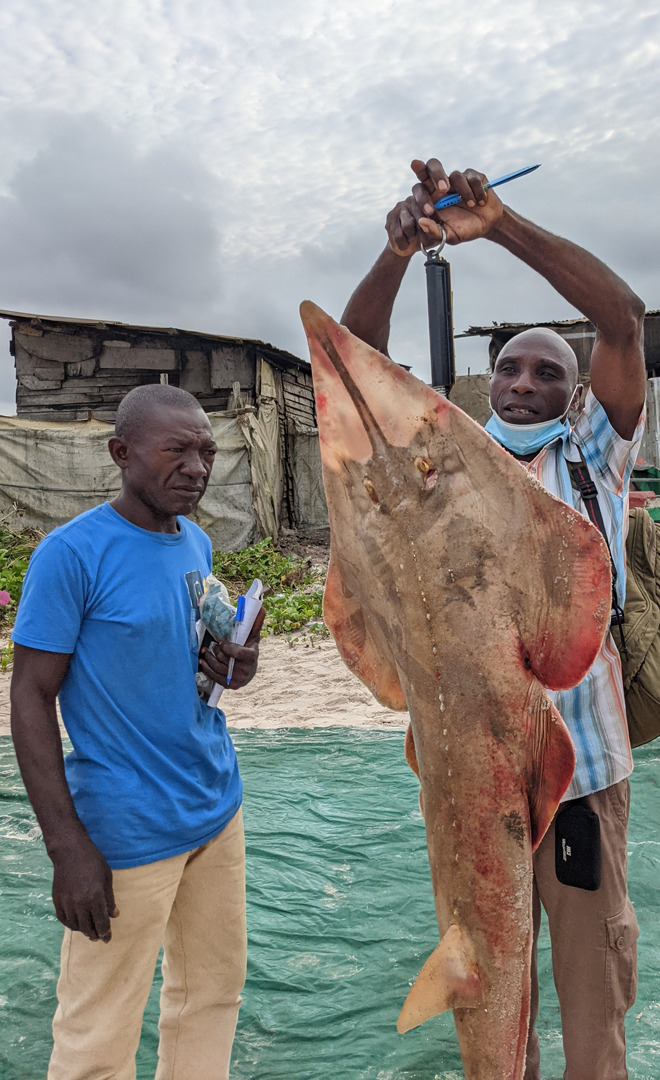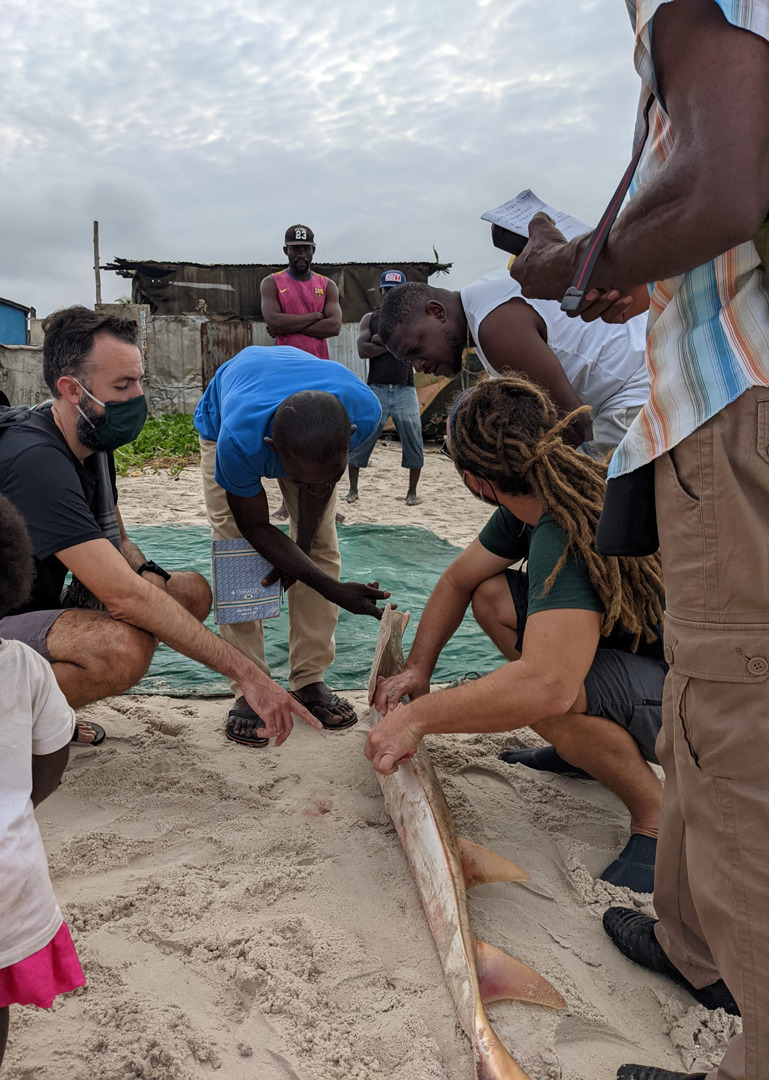Building trust and capacity at landing sites
Many coastal communities and in-country organisations have had researchers come and go in the past, often not sharing information, findings, or techniques along the way. Any long-term viability of a project will come from a participatory approach to marine resource management, building on an existing network of in-country partners and collaborators.

Typical scene of one pirogue’s catch (sorted by species and size) with negotiations ongoing for best price. Photo © Phil Doherty.
Individual pirogues arriving at the landing site on day of survey are selected on the beach for their entire catch to be categorised to observe whole landed sharks and rays before processing begins, methodology that requires prior buy-in, trust, and cooperation from fishers. The fishers of Songolo are cautious of outside interference, which is understandable, there is a small window to get catch unloaded off the boat, sorted, sold, and the crew to turn the boat around to go fishing again. Therefore, as part of the activities of this project, we worked closely with fishers to develop the survey protocol to minimise disturbance to normal fishing and trading operations at Songolo. As such for the most part alongside species level individual catch rates, we have collected data on aggregated weights of sharks and rays as this didn’t involve members of the team handling the sharks and rays during processing. However, during the progress of this project, we are now being able to sample a subset of some catch to collect morphometric data to improve our understanding of sharks and rays in Congolese waters.

Congolese field team weighing a large blackchin guitarfish (Glaucostegus cemiculus) landed at Songolo. Photo © Phil Doherty.
A real strength of this project is the ability to invest in our in-country partners and train Congolese scientists to collect the field observations and manage the data. These researchers are passionate scientists, invested in creating a sustainable future for their coastal communities. It is these individuals who have spent the time working with fishers and the cooperatives that manage fishing activity to work on protocols and feedback information and findings, as well as providing natural history and identification knowledge to interested fishers.

Congolese field team measuring and sexing a large blackchin guitarfish (Glaucostegus cemiculus) landed at Songolo and describing the key factors to identify and sex these individulas to the fishers that caught them. Photo © Phil Doherty.
These data will provide a detailed insight into the catch composition from this important landing site in a region where data on species specific catch composition are lacking. Surveys were conducted by two trained Congolese observers visiting Songolo four days per week, when possible, to assess shark and ray catch from pirogues landing in front of the trading centre.
